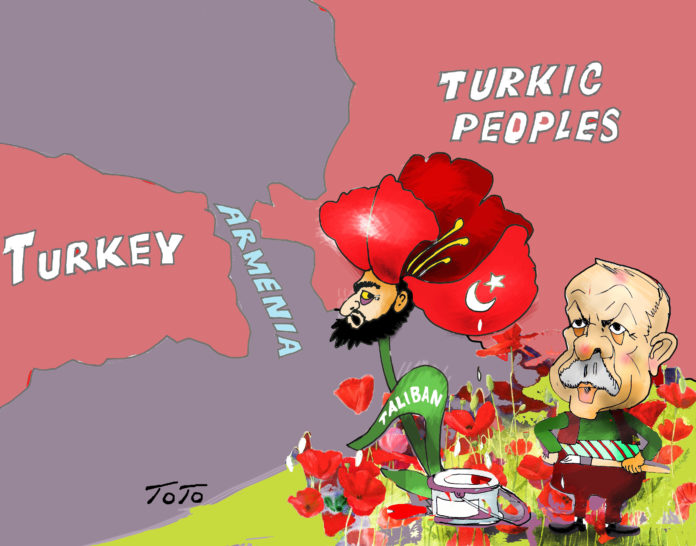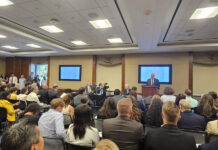The collapse of Afghanistan’s government and takeover of the country by the Taliban, considered by many countries as a terrorist organization, has hit the headlines. Accompanying terrorist attacks and desperate evacuation movement have further exacerbated the situation. The world is watching with trepidation to see where all developments may lead. Armenians have more cause for concern because of Turkey’s role in these developments, which may result in additional dividends to Turkey.
Following the World Trade Center attack on September 11, 2001, the US decided to wage a war against terror and dismantle Taliban rule in Afghanistan, where most of the terrorist acts were hatched and the perpetrators had taken refuge.
After the Taliban ouster from power and the assassination of 9/11 mastermind Osama Bin Laden, the US did not declare mission accomplished. Incidentally, Bin Laden had found a safe haven in Pakistan, the hub of terrorism. Although the US held Pakistan, also an ally, at armlength, it was the Pakistani intelligence which financed, armed and directed Taliban activities against the government installed by the US in Afghanistan.
Washington was not satisfied taming the terrorists and dismantling their infrastructure; it began a nation-building process, guided by the same fallacy that the West habitually applies, trying to impose Western-style democracies in places like Afghanistan, where people live in a much different reality, with different sensibilities.
In an article published in Outlook, titled “Blood in Sand” on August 29, Jeffrey D. Sachs writes: “The magnitude of the United States’ failure in Afghanistan is breathtaking. It is not Democrats or Republics, but an abiding failure of American political culture, reflected in US policy makers’ lack of interest in understanding different societies. And it is all too typical. Almost every US military intervention in the developing world has come to rot.”
If the nature of democratic rule is derived from the will of people, those people have to be mature enough to understand and exercise democratic processes. There is no one-size-fits-all democratic system. That is why the artificial government in Kabul collapsed as soon as President Biden declared his intention of ending the perpetual war and pulled up stakes, even before the ragtag army of the Talibans moved in with truck-mounted machineguns. And hence the stampede to get out of the country. No one has yet been held accountable for $1 trillion wasted US taxpayers.








